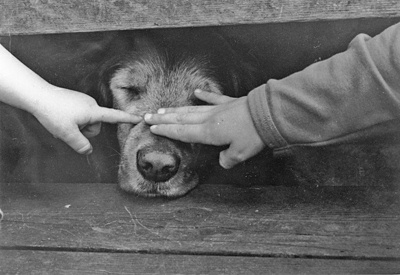All Nonfiction
- Bullying
- Books
- Academic
- Author Interviews
- Celebrity interviews
- College Articles
- College Essays
- Educator of the Year
- Heroes
- Interviews
- Memoir
- Personal Experience
- Sports
- Travel & Culture
All Opinions
- Bullying
- Current Events / Politics
- Discrimination
- Drugs / Alcohol / Smoking
- Entertainment / Celebrities
- Environment
- Love / Relationships
- Movies / Music / TV
- Pop Culture / Trends
- School / College
- Social Issues / Civics
- Spirituality / Religion
- Sports / Hobbies
All Hot Topics
- Bullying
- Community Service
- Environment
- Health
- Letters to the Editor
- Pride & Prejudice
- What Matters
- Back
Summer Guide
- Program Links
- Program Reviews
- Back
College Guide
- College Links
- College Reviews
- College Essays
- College Articles
- Back
The Animals Left Behind MAG
As the wrath of Hurricanes Katrina and Rita poured upon the helpless shores of Texas, scores of refugees flooded San Antonio, stuffing every vacant lot, churchyard and hotel room. With them came their pets, but animals were forbidden in almost all available housing and so they were left in the care of animal shelters. These shelters, unable to refuse pleas of evacuees, quickly became overcrowded with critters and so they too shouted for help - all the help they could get.
It just so happened that the echoes of this shout reached my ears when, on a windy Sunday while heading to church, a pamphlet landed on our windshield. As my mom swerved, I read about the animals’ predicament and processed the words’ horrors. My mom, after she stopped struggling with the wheel and screaming at passing cars, saw the message too and a look of shock contorted her face. She swung the car in a sweeping U-turn, flipped open her cellphone and told me to call friends.
When we reached the animal shelter, I felt like I had found Noah’s ark. Rows, columns and piles of raggedy animals lined the walls, covered the floor and padded across the grounds. A woman met us, and when we told her we wanted to help, she laughed, pushing a liability form at us. I signed my name and snagged a leash from a passing trolley. The dogs stared at me from behind their prison bars, their big, begging eyes those of destroyed beings.
My first brace of dogs was two Labrador retrievers, still puppies, but with their paws swollen and infected from the fetid water and debris that had swamped their homes.
I pulled them around the exercise area, but they did not walk like normal, care-free canines. They acted as if each step would send them off a cliff, each movement making their terror a reality. They looked at me through swollen eyelids, puffy whites shining through their blacks. They were brothers, I realized, but they didn’t play; they didn’t even touch each other. They were in a foreign world with everything they had known having disappeared. A soft whimper came from their parched throats as I slid the iron bolts of their cell doors shut behind them.
My mom ushered me into a new room and I realized I had only seen one of ten holding spaces. This chamber was dominated by the stench of felines. Feces littered the floor and empty water bowls clattered as the cats tripped over them, their usual dexterity having disappeared with their water. I glanced at their play place, a felt-covered mountain ordinarily filled with hissing cats but only one reluctant cat slid from one landing to the other, its ears drooping.
We moved on and saw all ten rooms, each a scene of destruction, dehydration and loss. Each animal reeked of stolen homes and lives. The animals’ eyes lingered on me and I was reminded of an orphanage. The only difference was that, in this orphanage, no one would come for them. They were dying.
I stayed at the shelter that weekend and most of the next, fervently kindling the dying flames of many lost souls. Wicked sicknesses slipped through the creatures’ veins and death stole through the shelter, creating a wake of death and despair. Amidst the sadness, a few owners did arrive, hoisting their lucky animals into their arms, kissing their scruffy necks.
But most owners never came. Most animals sat there, silent, their hollow eyes boring into my conscience. We couldn’t help them all, but we tried. We worked tirelessly, hours and lives passing with the caustic tick of the clock. By the end of my time there, I had saved many lives, but I had reconstructed none. These animals needed homes, owners, companions. I realized that we had given them a reason to live. They knew they had a future, however bleak. As I walked from the mewing, crying and coughing, I looked back and knew that I had made a difference, no matter how small.

Similar Articles
JOIN THE DISCUSSION
This article has 1 comment.

0 articles 0 photos 12292 comments